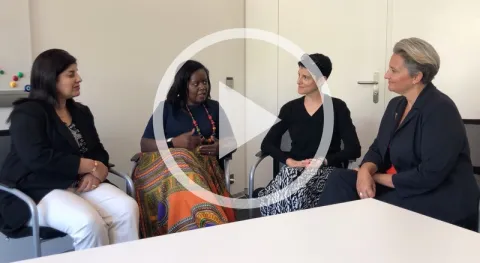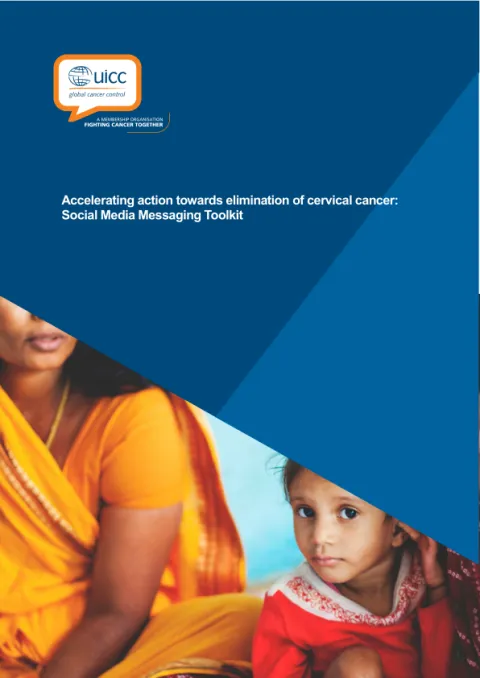Reactions to the call to action at WHA regarding access to cervical cancer prevention
Please watch and listen to our podcast – reactions to the call to action to address the social inequality of access to cervical cancer prevention here below:
Dr Neerja Bhatla, Dr Sharon Kapambwe, Dr Ophira Ginsburg and Julie Torode
Summary:
- We are starting to see a break in the taboos about talking about the cervix and symptoms, we now have the opportunity to remove the stigma around these preventative interventions and cause a change in mindset, speaking to the whole community about the protection and sense of wellbeing from HPV vaccination and at least a once in a life-time screen
- The connectivity between community healthcare and the treatment centres need to be assured, navigating women with a positive screen through the system, but it is also about making the community to become an active player, particularly working through community leaders and bringing information and services as close to the community as possible.
- We do need a change in mindset from the healthcare providers too, their role does not start when disease is present, they too need to embrace their health promotional role, perhaps through designated integrated health services.
- We need a robust technical assistant mechanism, building the capacities for dealing with early cervical cancer such as surgery a simple hysterectomy, but also palliative care, so that the care continuum is secure.
- Building cross-sectoral partnerships at all health service levels and find local support to ensure they are financially sustainable.
- We need to drive the investment case at national level, ensuring cost is not a barrier to those in most need.
- We need a global mapping of where countries are, providing the right help in a phased approach reacting to where they are, but leaving no one behind.
- We also need to map and engage all industry partners to help drive the affordability for all countries.
- Building communities of best practice to learn rapidly from each other, to drive scale up to national services.
- We need to wrap a strong research agenda around the implementation to learn and be effective in all implementation efforts.
- We need coordinated advocacy at global, regional and national levels to generate trust, collective action and utilisation of services with robust monitoring and evaluation to check and challenge on those not using the services as well as those being lost along the way, to ensure maximum learning as efforts progress.

Resource Information
Type of resource
Multimedia
Author
UICC
Publish date
28 May 2018
Language
English
Last update
Sunday 20 November 2022
